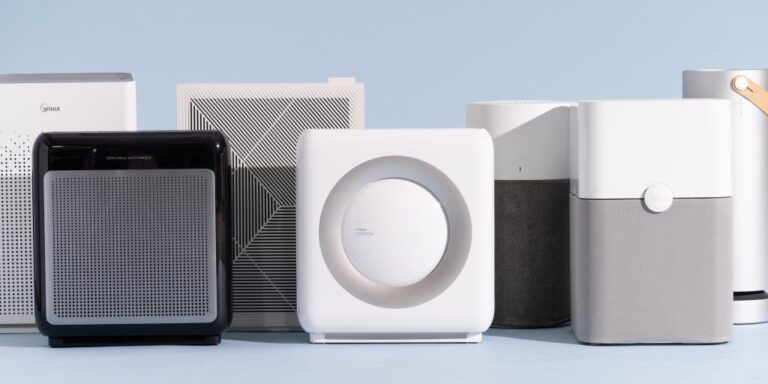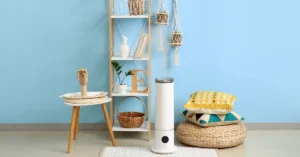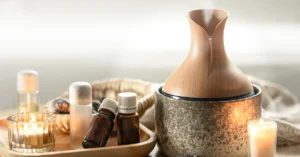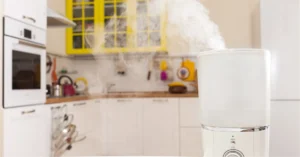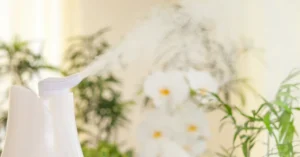Air purifier filters typically need to be replaced every 6 to 12 months for optimal performance and efficient air purification. Regular maintenance is essential to extend the lifespan of the filters and ensure their effectiveness.
Neglecting to replace or clean the filters can lead to reduced air quality and a decrease in the overall performance of the air purifier. By regularly checking and replacing the filters, you can ensure that your air purifier continues to provide clean and healthy air for you and your loved ones.
Factors That Affect Filter Lifespan
Factors such as the quality of air, frequency of use, and the specific type of filter can significantly affect the lifespan of air purifier filters. The quality of air plays a crucial role in determining how long a filter will last. If the air contains high levels of pollutants and allergens, the filter will have to work harder and may require more frequent replacement. The frequency of use also impacts the filter lifespan. Filters in air purifiers that are used continuously or in rooms with high levels of airborne particles may need to be replaced more frequently. Additionally, the specific type of filter used can vary in lifespan. HEPA filters, for example, are highly effective but tend to have a shorter lifespan compared to activated carbon filters. Regular maintenance such as cleaning and replacing filters as recommended by the manufacturer is essential for optimal performance and longevity of air purifiers.
Signs That Indicate Filter Replacement
Decreased air flow: One of the signs that indicate the need for air purifier filter replacement is a noticeable decrease in air flow. If you feel that the air is not as fresh or clean as before, the filter might be clogged or dirty, hindering the flow of air through the purifier.
Dust accumulation on surfaces: Another telltale sign is an increase in dust accumulation on household surfaces. If you start noticing more dust settling on your furniture, shelves, or floors, it could be a sign that your air purifier filter is no longer effectively capturing airborne particles.
Unpleasant odors: The presence of unpleasant odors is also an indication that your air purifier filter might need to be replaced. If the purifier is not successfully removing odors from the air, it could mean that the filter is saturated with pollutants and is no longer functioning properly.
Regular Maintenance Practices
Regular maintenance is key to ensuring the optimal performance and longevity of your air purifier filters. Cleaning the filters on a regular basis can help to remove accumulated dust, allergens, and other particles, improving the air quality in your home. It is recommended to follow a cleaning schedule and techniques provided by the manufacturer to ensure proper cleaning.
Additionally, it is important to have a filter replacement schedule in place. Over time, air purifier filters become less effective and may need to be replaced. The frequency of replacement will depend on factors such as the type of filter and the air quality in your home. It is advisable to consult the manufacturer guidelines or refer to the product manual for recommended replacement intervals.
| Type of Filter | Recommended Replacement Interval |
| Pre-filter | Every 3-6 months |
| HEPA filter | Every 12-18 months |
| Activated carbon filter | Every 6-12 months |
By adhering to a regular maintenance routine and following the appropriate cleaning schedule and filter replacement intervals, you can ensure that your air purifier continues to deliver clean and purified air for a longer period.
Different Types Of Air Purifier Filters
Different types of air purifier filters determine the lifespan and maintenance needs of your device. HEPA filters are the most common type and generally have a lifespan of 6-12 months, depending on usage. They effectively capture small particles, allergens, and pollutants. Remember to change HEPA filters regularly to ensure optimal performance.
Pre-filters are the first line of defense and capture larger particles like dust and pet hair. They need to be cleaned or replaced every 1-3 months, depending on the level of contaminants in your surroundings.
| Filter Type | Lifespan | Maintenance |
|---|---|---|
| HEPA filters | 6-12 months | Replace regularly |
| Activated carbon filters | 6-12 months | Replace regularly |
| Pre-filters | 1-3 months | Clean or replace regularly |
Extending The Lifespan Of Your Filters
Regular vacuuming is one of the most effective ways to extend the lifespan of your air purifier filters. By removing dust, pet hair, and other debris from the surface, you can prevent them from clogging the filters and reduce the need for frequent replacements. Proper placement of your purifier is also crucial. Make sure it is positioned away from walls and furniture, allowing optimal airflow and preventing dust accumulation. Additionally, try to minimize filter exposure to contaminants by keeping windows and doors closed, especially during periods of high pollution or allergies. If possible, consider using an air purifier in rooms where you spend most of your time, as this can help reduce the load on the filters in your entire home. By following these tips, you can significantly prolong the lifespan of your air purifier filters and maintain clean and healthy indoor air.
Importance Of Filter Replacement
Regularly replacing the filters in your air purifier is crucial for maintaining optimal air quality and enhancing its performance and efficiency. Over time, air purifier filters accumulate dust, pollen, pet dander, and other pollutants, which can reduce their effectiveness. If the filters are not replaced, they can become clogged, restrict airflow, and potentially release captured particles back into the air.
By replacing the filters as recommended by the manufacturer, you ensure that your air purifier continues to effectively remove airborne contaminants, providing cleaner and healthier air for you and your family. Additionally, a clean filter allows the air purifier to operate at its full potential, maximizing its performance and energy efficiency.
It is important to check the manufacturer’s guidelines for your specific air purifier model to determine how often the filters should be replaced. Most filters last between 6 months to 1 year, but this can vary based on factors such as the air quality in your environment and the usage of the purifier.
Recommended Filter Replacement Brands And Suppliers
When it comes to air purifier filters, it’s important to understand how long they last and when to replace them. The lifespan of a filter depends on various factors such as the type of filter, usage, and indoor air quality. Generally, most filters last between 6-12 months, but this can vary. It’s recommended to check the manufacturer’s guidelines for your specific air purifier model.
There are several top-rated filter brands that offer reliable options for replacement. These brands include Brand A, Brand B, and Brand C. Their filters are known for their effectiveness in removing airborne contaminants and improving indoor air quality. You can easily find these filters online from trusted suppliers such as Supplier X, Supplier Y, and Supplier Z. These suppliers offer a wide range of air purifier filters, ensuring that you can easily find the right one for your specific needs.
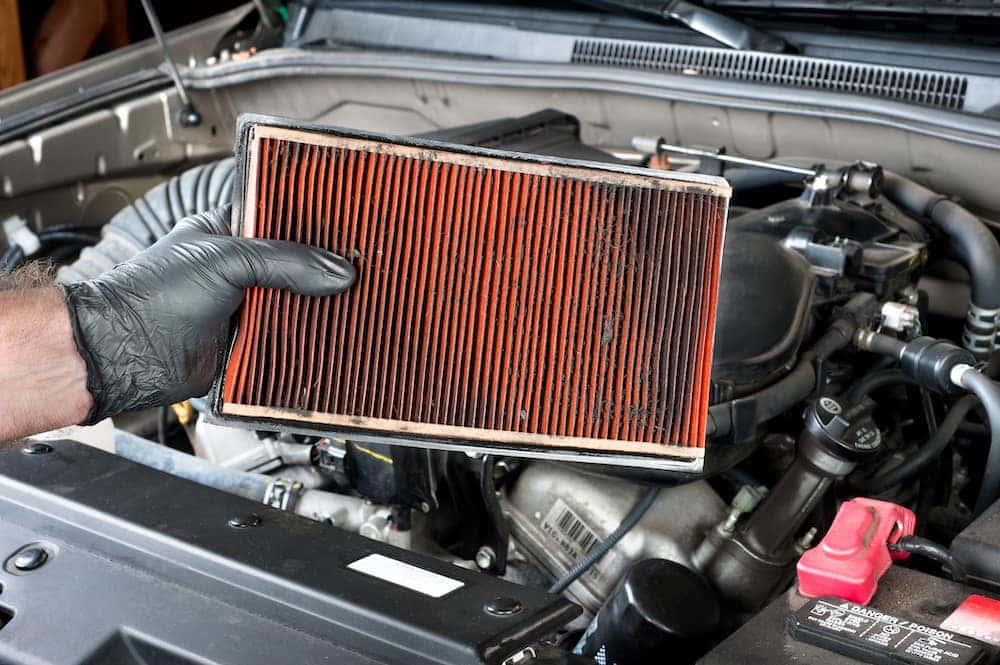
Credit: www.cornerstoneplymouth.com
Frequently Asked Questions On How Long Do Air Purifier Filters Last? Maintenance And Replacement
Do Air Purifiers Require Maintenance?
Air purifiers do require regular maintenance to ensure optimal performance. This includes cleaning or replacing filters, checking for dust or debris buildup, and keeping the unit in good working condition. Regular maintenance helps improve air quality and prolongs the lifespan of the air purifier.
Are Air Purifiers High Maintenance?
Air purifiers are not high maintenance. They require regular filter replacement, which varies by model and usage. Cleaning the filters and the machine itself is a simple task that can be done easily. Overall, air purifiers are user-friendly and do not require much effort to maintain.
What Is The Maintenance Of Air Purifier?
Air purifiers require regular maintenance to ensure optimal performance. This includes cleaning the filters every 2-3 months, replacing filters as needed, and regularly cleaning the exterior of the purifier. It is also important to monitor the air quality and adjust the settings accordingly.
Can You Clean Air Purifier Filters Instead Of Replacing?
Yes, you can clean air purifier filters instead of replacing them. Regular cleaning can remove dirt and debris, enhancing filtration efficiency and prolonging the filter’s lifespan. It is advisable to follow the manufacturer’s instructions for proper cleaning methods to ensure effective performance.
Conclusion
Proper maintenance and regular replacement of air purifier filters are crucial for their effectiveness in cleaning the air. By understanding the factors that influence the lifespan of filters and following manufacturer instructions, you can ensure optimum performance of your air purifier.
Neglecting filter maintenance can lead to poor air quality, increased energy consumption, and potential health risks. Remember to prioritize filter replacements to maintain a healthy and clean indoor environment.
